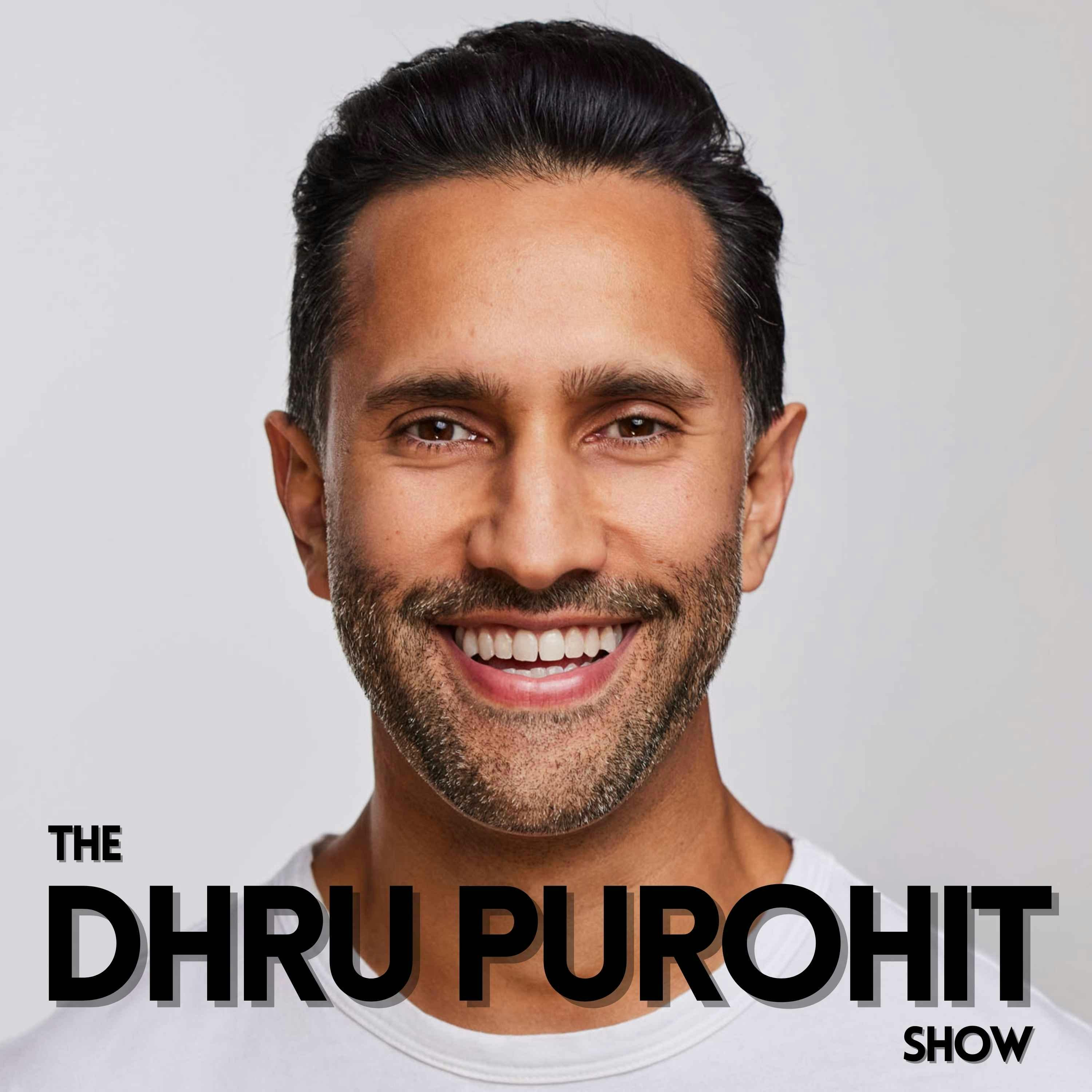
Dhru Purohit Show
Why You Need a Dopamine Detox: The Science Based Way to Master Self Control & Break Addiction Patterns with Dr. Alok Kanojia
25 Nov 2024
This episode is brought to you by Momentous, Lifeforce, and One Skin. In today’s world, addiction takes many forms—whether it’s alcohol, drugs, social media, or snacking on ultra-processed foods. Certain key factors drive these behaviors and make breaking the cycle of addiction challenging. Today’s guest offers powerful insights into brain health and psychology, explaining why these behaviors occur and how we can break free. Today on The Dhru Purohit Show, Dhru sits down with Harvard-trained psychiatrist Dr. Alok Kanojia to explore addictions, how they start, and their impact on brain health. Dr. Kanojia explains the roles of dopamine and serotonin in addictive behaviors and reveals the lifestyle habits that deplete serotonin. He also shares his top tips for successful morning routines and the secret to mastering self-control. If you’re looking for insights into why we engage in addictive behaviors and advice on how to break free from the cycle, this episode is a must-listen! Dr. Alok Kanojia, known online as "Dr. K," is a Harvard-trained psychiatrist specializing in the intersection of technology and mental health. As the co-founder of Healthy Gamer, a mental health platform designed for the digital generation, Dr. Kanojia has inspired millions with his content while overseeing the mental health coaching of thousands of young people. Widely regarded as the leading expert on video game addiction, he is also recognized as one of the most prominent mental health authorities for the younger generation. In this episode, Dhru and Dr. K dive into: How addictions start (00:00:11) How social media impacts brain health (2:41) How dopamine and serotonin are impacted during these addictive behaviors (11:56) Top lifestyle behaviors that rob us of serotonin (17:42) Morning habits that influence our need for dopamine hits (23:15) Dharma and self-control (28:50) How to find your purpose (38:35) Choosing discomfort (44:35) Improving self-control and sitting with the discomfort of being uncomfortable (49:25) Dr. K’s journey (01:00:45) Meditation practice and how Dr. K started his meditation practice (1:06:45) Ultra-processed foods, gut health, and depression (1:14:35) Dr. K’s PSA on mental health advice on social media and comfort crisis (1:20:05) Also mentioned in this episode: Dr. K’s Book: How to Raise a Healthy Gamer Healthy GamerGG Spotify Podcast Healthy GamerGG Apple Podcast For more on Dr. K, follow him on X/Twitter, Twitch, TikTok, Instagram, Facebook, LinkedIn, YouTube, and his website. This episode is brought to you by Momentous, Lifeforce, and One Skin. Optimize your energy and mental clarity with the Momentous Three: Protein, Omega-3s, and Creatine made by and used by the best. Go to livemomentous.com and enter promo code DHRU to get 20% off any order. Right now, you can save $250 on your first diagnostic and get personalized suggestions. Optimize your longevity and track your progress; go to mylifeforce.com/dhru! Right now, One Skin is offering my community 15% off; just go to oneskin.co and use coupon code DHRU to save 15% and give your skin the scientifically proven, gentle care it deserves. Learn more about your ad choices. Visit megaphone.fm/adchoices
No persons identified in this episode.
No transcription available yet
Help us prioritize this episode for transcription by upvoting it.
Popular episodes get transcribed faster